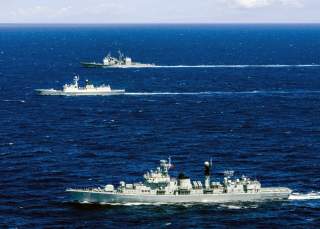Beijing's Dream: Becoming a Maritime Superpower
In the Chinese context, maritime power encompasses more than naval power but appreciates the importance of having a world-class navy.
Thus, beyond grasping the magnitude and appreciating the audacity of China’s ambition to turn a country with a historic continental strategic tradition into the world’s leading maritime power, the only practical course for the United States is to ensure that in the eyes of the world it does not lose the military competition over access to East Asia because without assured access the central tenets of America’s traditional East Asian security strategy cannot be credibly executed.
Rear Admiral (Ret) Michael McDevitt has been at the Center for Naval Analyses since leaving active duty in 1997. During his Navy career, McDevitt held four at-sea commands, including command of an aircraft carrier battle group. He was a Chief of Naval Operations Strategic Studies Group fellow at the Naval War College and was director of the East Asia Policy Office for the Secretary of Defense during the George H.W. Bush Administration. He also served for two years as the director for Strategy, War Plans and Policy (J-5) for U.S. CINCPAC. McDevitt concluded his 34-year active-duty career as the Commandant of the National War College in Washington, D.C.

